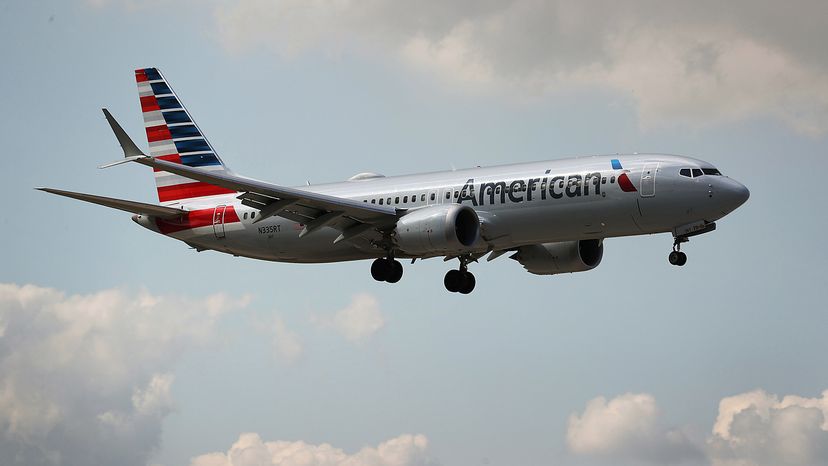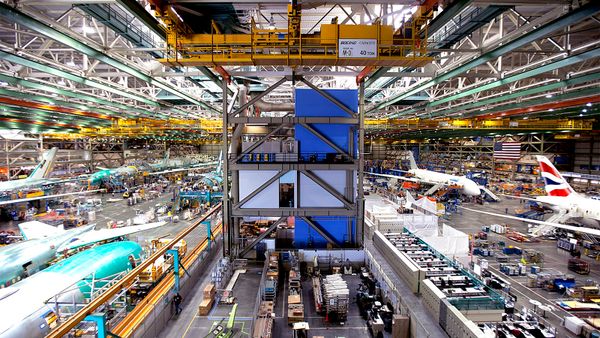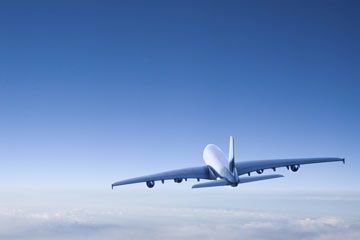
On March 13, the Federal Aviation Administration issued an emergency order, prohibiting the operation of the Boeing Company Model 737-8 and Model 737-9 airliners. Both are in the aircraft manufacturer's 737 MAX family of planes. The two models share 'nearly identical design features,' wrote the agency.
The grounding of the 737 MAX models came after the March 10 crash of Ethiopian Airlines flight ET302, a Model 737 MAX 8. The flight went down six minutes after taking off from Addis Ababa, Ethiopia, killing 149 passengers and eight crew members, according to the FAA order.
Advertisement
That catastrophe came less than five months after another 737 MAX 8 operated by Lion Air crashed into the Java Sea about 13 minutes after taking off from Jakarta, Indonesia. One-hundred eighty-four passengers and five crew died. The day before that crash, the very same Lion Air plane had experienced problems with its flight-control system. The crew was able to fix them thanks to an off-duty pilot who jumped in to assist, Bloomberg reports.
As we now know, information obtained in the investigation of the Ethiopian crash indicated similarities with the earlier accident "that warrant further investigation of the possibility of a shared cause for the two incidents that needs to be better understood and addressed," according to the FAA.
Boeing, meanwhile, has been working on upgrading the plane's flight control systems suspected to be contributing to the crashes. The company issued a March 13 statement expressing its support for the temporary suspension and said it was working with the investigators. Aviation regulators in numerous other countries also have grounded the aircraft. So no, you don't have to worry about your next flight being on a Boeing 737 MAX 8 or 737 MAX 9. In the U.S., American Airlines, Southwest Airlines and United Airlines all have 737 MAX 8s or MAX 9s in their fleets.
All this has cast a shadow over what has been one of Boeing's most successful aircraft, the latest generation of the more-than-half-century-old Boeing 737 airliner franchise.
The 737 MAX 8 was the first to be developed in Boeing's family of 737 MAX aircraft, according to a 2017 company media release. Designed for the single-aisle airliner market, it aims to provide better fuel efficiency, reduce carbon dioxide emissions and be quieter than the previous generation of 737s.
Boeing has touted its MAX series as the fastest-selling airplane in the company's history. It has received nearly 4,700 orders from 100 different customers since its introduction in 2017. It's meant to compete with models like Airbus' A320neo.
Here are some fast facts about the Boeing 737 MAX 8.
- The aircraft is 129 feet, 8 inches (39.5 meters) in length, with a wingspan of 117 feet, 10 inches (35.9 meters). It stands 40 feet, 4 inches (12.3 meters) tall.
- The aircraft's maximum takeoff weight is 181,200 pounds (82,191 kilograms), according to this 2014 Boeing brochure. That includes 6,853 gallons (25,941 liters) of jet fuel.
- It has a maximum range of 3,550 nautical miles (6,570 kilometers), significantly farther than earlier 737s. For reference, the distance from New York City's LaGuardia Airport to Los Angeles International Airport is 2,146 nautical miles (3,974 kilometers).
- The aircraft's cruising speed is Mach 0.79, or 606.1 miles (975.4 kilometers) per hour.
- The 737 MAX 8 can hold a maximum of 210 passengers. That's a lot of people, but not as many as, say, the Airbus A380, which can hold more than 800.
- The aircraft is powered by twin LEAP-1B engines.
- It creates about 85 dBa of noise on takeoff, making it 40 percent quieter than the Boeing 737-800 series.
- The Boeing 737 MAX 8's average price is $121.6 million. Compare that with $418.4 million for a 747-8.
- The FAA certified the 737 MAX 8 in March 2017, after a year of testing. As the Seattle Times noted, some of that certification was assigned to Boeing itself to conduct, a practice that has occurred before in the industry.
- The first 737 MAX 8 delivery was to Malaysia-based Malindo Air in May 2017.
An industry analyst told National Public Radio that the crashes aren't likely to have that much effect on sales, since the aircraft are ordered years in advance. Boeing did, however, halt deliveries of several thousand 737 MAX aircraft.
Advertisement


